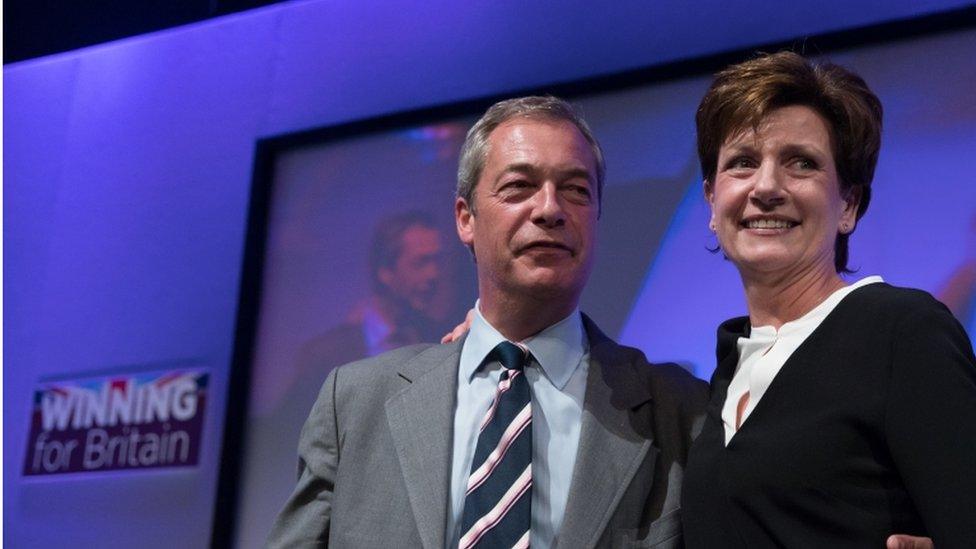UKIP leader Diane James standing down after 18 days
- Published
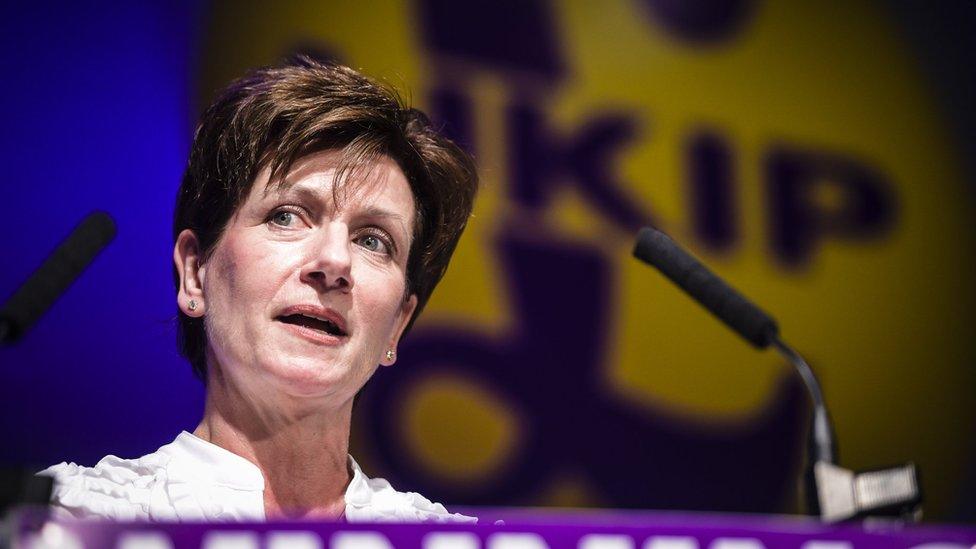
UKIP leader Diane James is standing down from her role 18 days after she was elected.
In a statement to the Times newspaper, external, she said she would not be "formalising my recent nomination".
The 56-year-old MEP for South East England said she did not have "sufficient authority" to see through changes she had planned.
Ms James succeeded Nigel Farage on 16 September after he quit in the wake of the UK's vote to leave the EU.
She had not appointed a deputy and UKIP officials were unable to say who was leading the party.
Speaking to Radio 4's Today programme, UKIP chairman Paul Oakden said he would check with the Electoral Commission to see who the party leader was and admitted it could technically be Mr Farage.
Asked whether Mr Farage would return to lead the party again, Mr Oakden said it was "very unlikely" but added: "I wouldn't say anything is impossible."
However, Mr Farage told the BBC that he was "technically" party leader again but would not be contesting any future leadership contest.
Mr Oakden previously said he would look to hold an emergency meeting of the party's national executive committee to confirm the process for electing Ms James's replacement.
"Whilst the decision is unfortunate, it is one that Diane is entitled to make. We thank her for all her work as leader, and as a hard-working MEP, a role she will continue with her customary vigour."
UKIP chairman Paul Oakden on the resignation after 18 days of UKIP leader Diane James.
Ms James, who posted her statement to the Times on her Twitter account, said since her election she had been in discussion with party officers about her role as leader.
"It has become clear that I do not have sufficient authority, nor the full support of all my MEP colleagues and party officers to implement changes I believe necessary and upon which I based my campaign," she said.
"For personal and professional reasons therefore, I will not take the election process further."
The former Conservative councillor, who defected to UKIP in 2011, said she will "continue to concentrate fully" on her activities and responsibilities as an MEP, adding it was her "final media statement on the issue".
Her decision is also thought to be partly due to a family illness.

Analysis

By Alex Forsyth, political correspondent
Diane James took over UKIP at a time when it was beset by rifts and infighting.
There were different factions within the party that were struggling to come together and agree on its future direction.
When elected, she made a point of saying that the focus for her was on unity - the party needed to get behind her and rally around.
She wanted to make some changes about the way the party was governed, how its ruling body, the national executive committee, ran things.
Reading between the lines of her statement, it seems she does not feel she can continue do that.
Read more: UKIP turmoil returns after resignation

Ms James, a former businesswoman and healthcare professional, saw off four other contenders - Lisa Duffy, Bill Etheridge, Liz Jones and Phillip Broughton - in the leadership battle.
She won with 8,451 out of the 17,970 votes cast, ahead of Ms Duffy, who received 4,591.
One-time frontrunner Steven Woolfe was barred from standing after submitting his nomination papers too late, while Suzanne Evans was unable to take part as she was suspended at the time.
Speaking to BBC Radio 5 live, Ms Duffy said she would not rule herself out from standing again for the leadership of the party.
She said: "I've said to the party chairman, I am happy to do whatever the party wants to do to keep it going."
Diane James addresses the UKIP party conference after being elected its new leader.
Ms James, in her acceptance speech at the party's conference in Bournemouth, had said: "We are going to confound our critics, we are going to outwit our opponents, we are going to build on our election success that we have achieved to date and do more."
But the race to replace Mr Farage had exposed bitter divisions within UKIP, with Ms James encountering criticism from some in the party after declining to take part in hustings debates around the country with her rivals.
Ms James's resignation prompted speculation Mr Farage - UKIP leader from 2006-2009 and 2010-2016 - might return to lead the party for a third time.
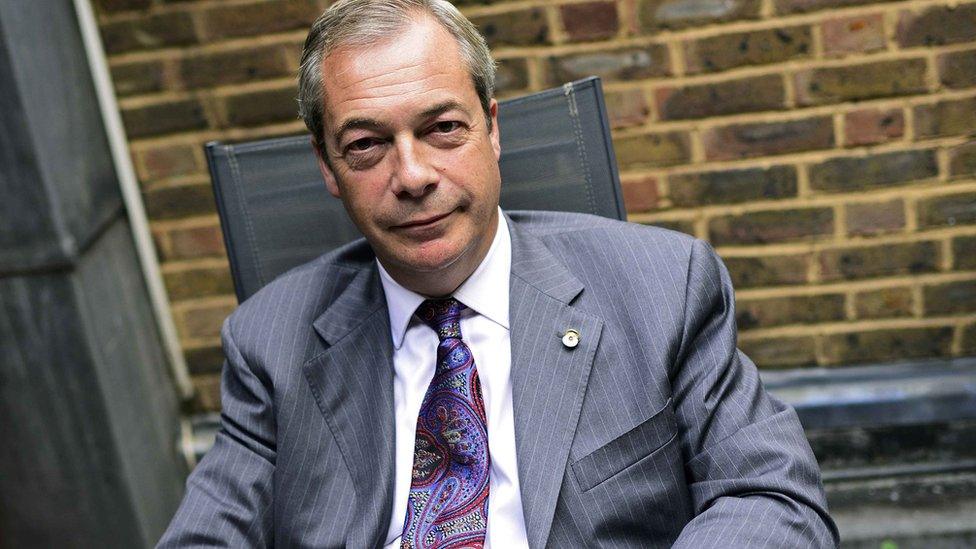
Nigel Farage has ruled out a leadership return
However, he told the Press Association: "I'm not coming back, I'm retired."
The face of Euroscepticism in the UK for nearly two decades, Mr Farage helped turn UKIP from a fringe party into the third biggest in UK politics - in terms of votes at the 2015 general election.
Announcing his decision to stand down, he said his "political ambition has been achieved".
Responding to Ms James's resignation, UKIP's only MP, Douglas Carswell, said: "I'm sad and surprised. I just hope she's alright".
Meanwhile, a number of senior UKIP members in the East of England have told the BBC of having "nagging concerns" about the "radio silence" from Ms James's camp since her election as leader.
They suggested that unless UKIP's national executive committee changes party rules, Lisa Duffy - who was backed by many anti-Farage supporters - "made sense" as an interim leader.
- Published4 October 2016
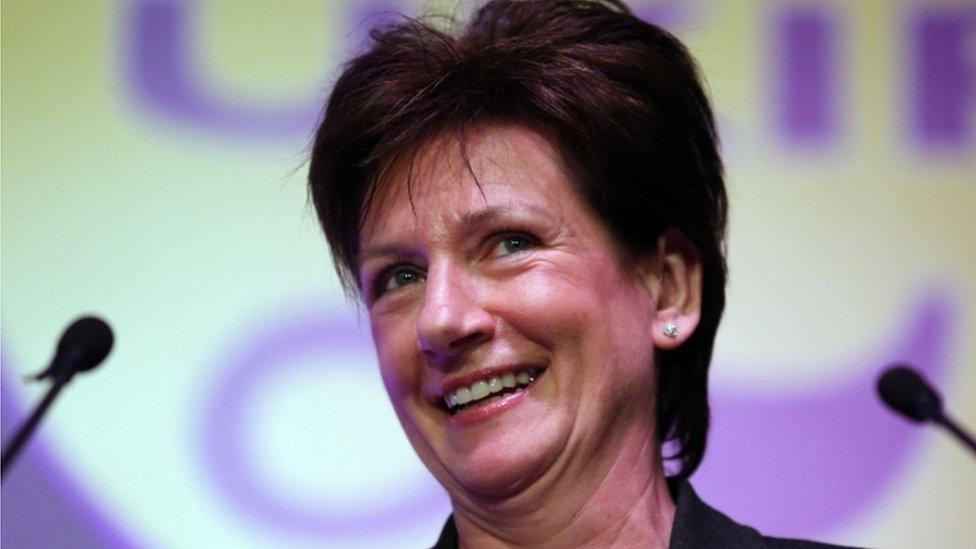
- Published26 September 2016
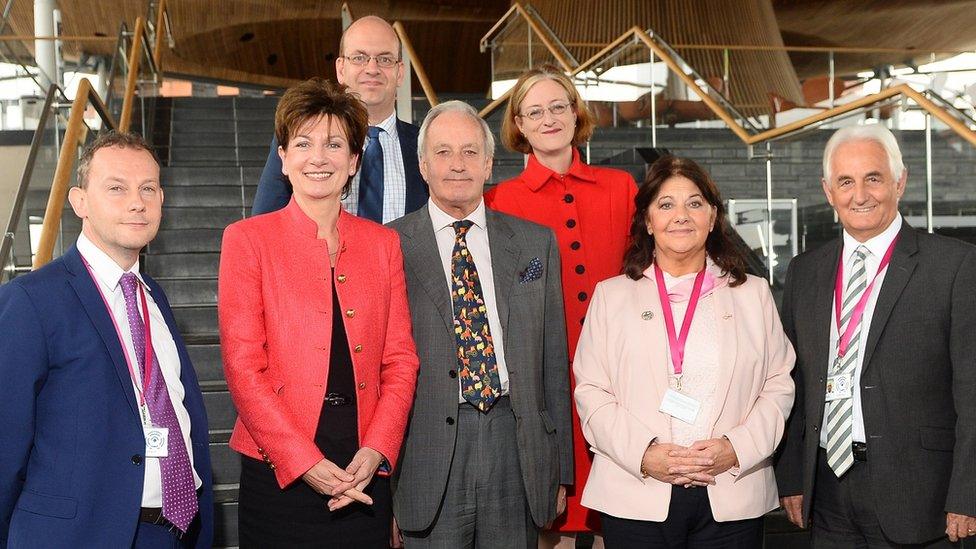
- Published5 October 2016
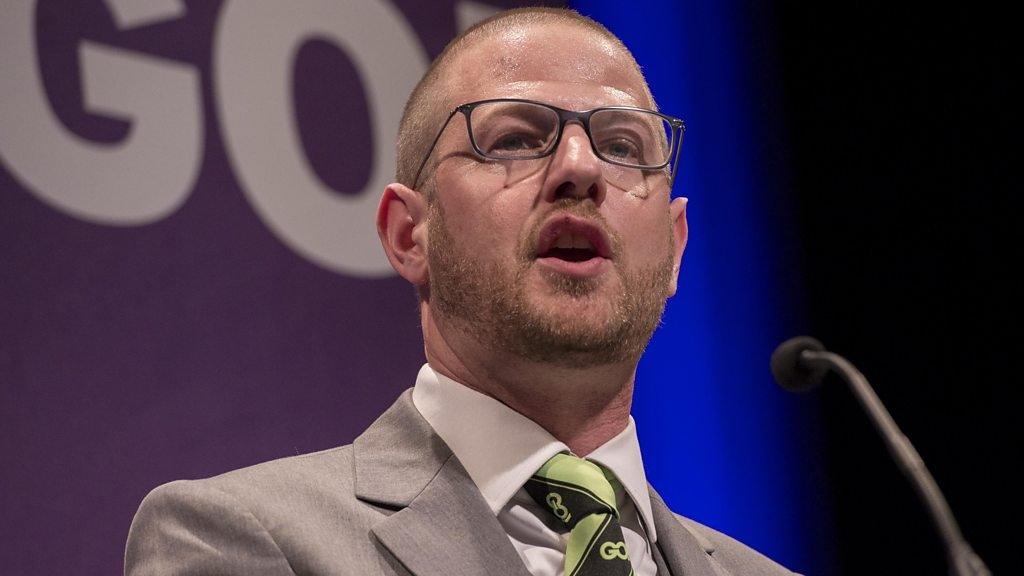
- Published22 September 2016
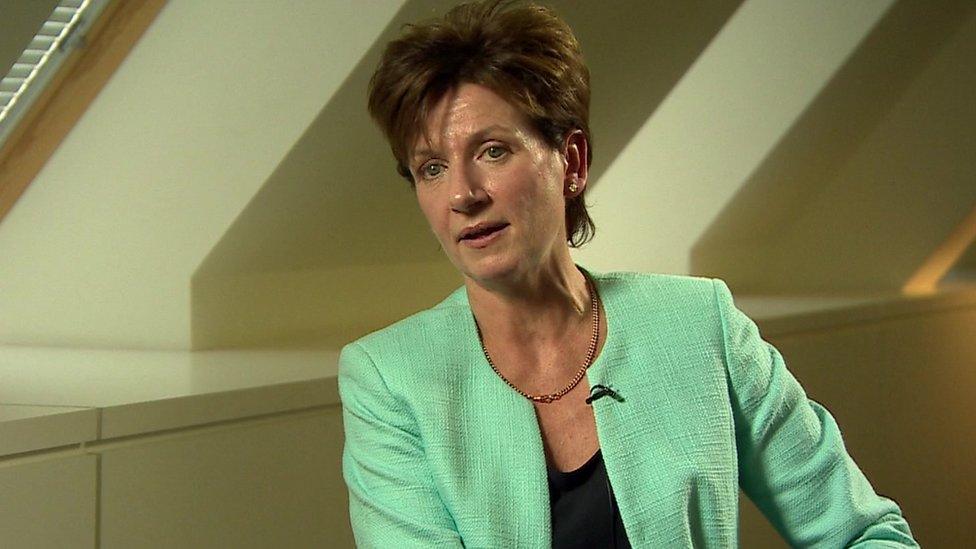
- Published16 September 2016
